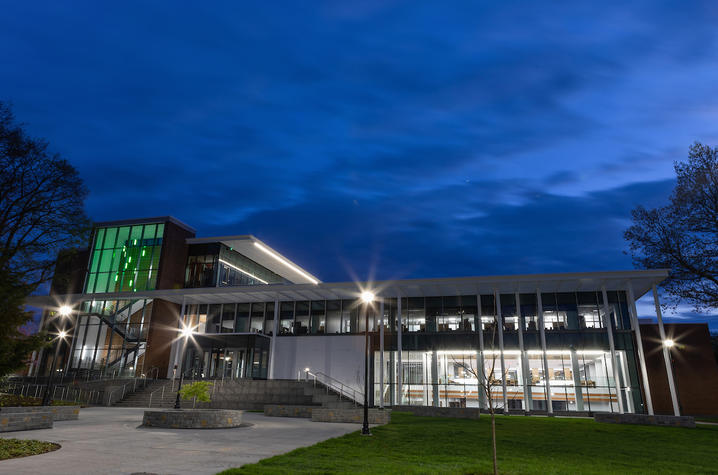The Next Steps in Meeting Our Budget Challenges

President Capilouto sent the following message to the UK community on Tuesday, April 21, 2020.
Dear Campus Community,
Over the last 24 hours, we have conducted meetings with senior administrators and deans to discuss the details of our budget challenge. We want to share those details with you by focusing on the principles that drive our decisions, specifics about the challenges we face, and some of the strategies we will use to confront this problem and prepare for a brighter future.
Our principles will drive everything we do:
- We will preserve the missions we’ve held for more than 150 years: education, research, service and health care.
- We will ensure the health, safety and well-being of our campus community.
- We will continue to focus on a return to safe and normal operations as soon as possible.
- We will position UK to thrive when we emerge from this crisis.
- We will communicate with the campus clearly and transparently.
The challenges are as daunting as our institution has faced in decades. For fiscal year 2021, the majority of our revenues are expected to decline, many significantly. Our core instruction and service-related revenues, what we call Undesignated General Funds, are comprised primarily of state appropriations, tuition revenue, and investment income.
At this moment, we are grappling with a more than $70 million shortfall in our Undesignated General Funds – the gap between revenues we previously anticipated and the expenditures required to advance our missions. What comprises that budget gap?
More than $40 million results from declines in institutional investment income and tuition revenues related to COVID-19. Virtually all higher education institutions are being impacted by what’s happening in the financial markets, where returns on invested short-term funds are dramatically lower than last year. Moreover, because of an uncertain and fragile economy, families and students are facing incredible disruptions that make education, no matter how valued and vital, a challenge. The uncertainty about the economic recovery from COVID-19 makes it more difficult for students and their families to plan.
Nearly $30 million results from ongoing commitments and increased costs that are essential to what we do: scholarships and financial aid for students; strategic investments, such as student mental health, the Disability Resource Center, and college incentive funds; health premiums for our employees; and an essential commitment we made to raise starting wages to $12.50 an hour for workers.
What strategies do we propose to close the gap and lay a foundation to thrive again as we emerge?
We have to make reductions in our operating budget. There’s no way around that. Every college, department and unit – including my office and all those that report to me – will face budget cuts. We will not, however, make cuts across the board. On average, across the institution, the cuts will be 10 percent. Below are listed some steps we must take to make those reductions:
- We will continue our hiring pause for the foreseeable future.
- We will enact low-activity/no-pay policies in units where work has ceased or been reduced significantly and the work can’t be done remotely. In effect, employees in those areas will be furloughed. The University, for a period of 90 days, will pay both the institution’s and employee’s share of health premiums.
- There will be, in some units, layoffs or a reduction in force. Those reductions in force will be determined at the unit level utilizing our existing HR procedures and subject to review by deans or senior administrative officials.
- We will, for one year, reduce the University’s retirement contributions to individual employees from 10 percent of the employee’s salary or wages to 5 percent. Our Board of Trustees will consider this proposal at its May meeting.
- We will not be able to provide merit increases July 1st for the coming year. As a result, we are not planning to increase employees’ health premiums or parking rates in fiscal year 2021.
- We will delay expansion of our family leave policy.
- We will delay our plans to make mandatory participation in our retirement program for new employees hired after July 1, 2020, who are under the age of 30.
- To better leverage our resources, we will move forward with shared services via dual-reporting line relationships for several key areas and explore additional areas in the coming months.
Many of these decisions will cause pain. They will require shared sacrifice. But they are necessary, if we are to meet our financial obligations, honor our principles of education, research, service, and health care and lay a foundation for the future.
The fact that so many institutions across the country are making many of the same decisions makes them no less painful. We will be challenged and tried in ways most of us have never experienced.
We will get through this. We will be innovative and resourceful. We will find new ways and create new approaches to meet daunting challenges. After all, as Kentucky’s University, we were created to serve this Commonwealth. Now, once again, we must show the world what Kentucky can do.
For more information and updates, visit www.uky.edu/coronavirus/budget.
Eli Capilouto




